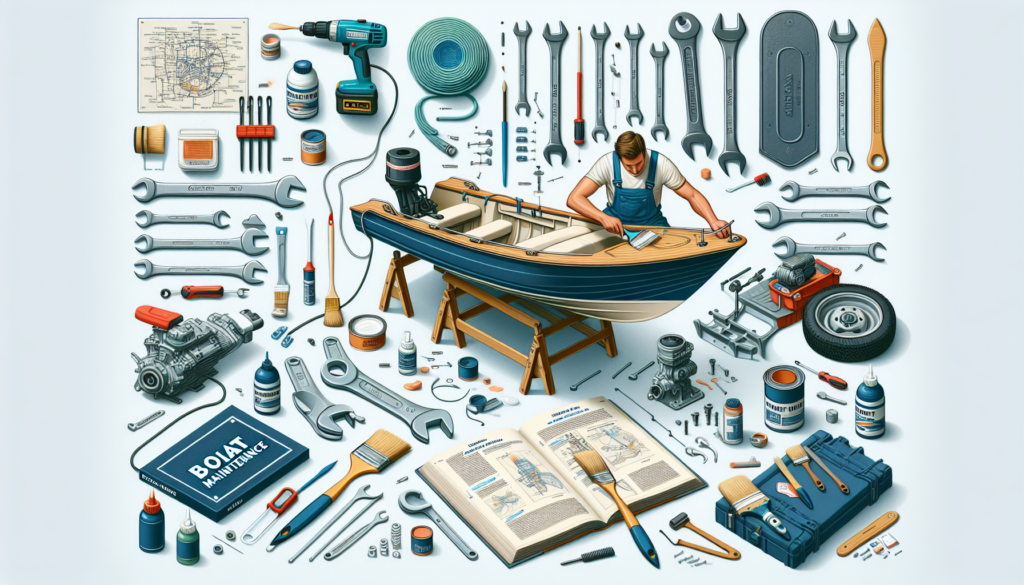Boat Maintenance Tips: Keeping Your Vessel Shipshape
Picture this: the sun setting over the horizon, casting a golden glow over the tranquil waters as your boat glides effortlessly through the waves. There’s no feeling quite like being out on the open water, with the wind in your hair and the salty air in your lungs. But to ensure that your boating adventures are always smooth sailing, it’s crucial to prioritize boat maintenance. In this comprehensive guide, we’ll delve into the world of boat maintenance tips, covering everything from basic upkeep to advanced techniques. Whether you’re a seasoned sailor or a novice seafarer, these tips will help you keep your vessel in top condition.
The Importance of Boat Maintenance
Before we dive into the nitty-gritty of boat maintenance tips, let’s take a moment to understand why regular upkeep is essential. Just like a car needs regular servicing to stay roadworthy, a boat requires routine maintenance to ensure it remains safe, reliable, and seaworthy. Neglecting to maintain your boat can lead to a host of issues, from minor inconveniences like engine breakdowns to more serious safety hazards such as leaks or structural damage. By staying on top of maintenance tasks, you can prolong the lifespan of your boat, prevent costly repairs, and most importantly, enjoy peace of mind while out on the water.
1. Regular Inspections
One of the most fundamental boat maintenance tips is to conduct regular inspections of your vessel. Before heading out on the water, take the time to inspect the hull, deck, sails, rigging, and engine for any signs of wear and tear. Look out for cracks, dents, loose fittings, or leaks, as these can indicate underlying issues that need to be addressed. By catching problems early on, you can prevent them from escalating into more significant concerns that could jeopardize your safety.
Additionally, it’s essential to inspect your boat after each outing to ensure that it has weathered the trip well. Saltwater, sun exposure, and rough seas can take a toll on your vessel, so be vigilant in checking for any damage or corrosion. By staying proactive with your inspections, you can nip potential problems in the bud and keep your boat in tip-top shape.
2. Cleaning and Maintenance
A clean boat is a happy boat, so don’t neglect the importance of regular cleaning and maintenance. Saltwater, algae, and marine growth can quickly accumulate on your boat, leading to unsightly stains and corrosion. To keep your vessel looking its best, wash it down with fresh water after each use and use marine-grade cleaning products to remove stubborn grime.
In addition to cleaning, don’t forget to perform routine maintenance tasks to keep your boat running smoothly. This includes changing the oil, inspecting the propeller, checking the engine belts, and greasing moving parts. By adhering to a regular maintenance schedule, you can prevent mechanical failures and ensure that your boat is always ready for your next adventure.
3. Engine Care
Your boat’s engine is its beating heart, so it’s crucial to take good care of it. Regular engine maintenance is key to ensuring that your boat runs efficiently and reliably. Start by checking the oil levels, changing the oil and oil filter as recommended by the manufacturer, and inspecting the fuel system for any signs of leaks or blockages.
It’s also essential to winterize your boat’s engine if you live in a cold climate, as freezing temperatures can cause serious damage. This involves flushing the engine with antifreeze, draining the water from the cooling system, and storing the boat in a dry, climate-controlled environment. By properly winterizing your engine, you can avoid costly repairs and extend its lifespan.
4. Electrical Systems
Modern boats are equipped with a variety of electrical systems, from navigation lights to onboard entertainment systems. To ensure that these systems function properly, it’s essential to perform regular checks and maintenance. Inspect the wiring for any signs of damage, corrosion, or loose connections, and replace any faulty components as needed.
It’s also a good idea to carry out routine checks on your boat’s battery to ensure that it’s charged and in good condition. Clean the battery terminals, check the water levels (if applicable), and consider investing in a battery charger to keep your battery topped up between outings. By maintaining your boat’s electrical systems, you can avoid unexpected failures and enjoy a hassle-free boating experience.
5. Safety Equipment
When it comes to boat maintenance, safety should always be a top priority. Before setting sail, make sure that your boat is equipped with the necessary safety equipment, such as life jackets, fire extinguishers, flares, and a first aid kit. Inspect these items regularly to ensure that they are in good working order and replace any expired or damaged equipment.
It’s also important to familiarize yourself with the proper operation of safety equipment and conduct regular drills with your crew to ensure that everyone knows what to do in an emergency. By prioritizing safety and preparedness, you can enjoy your time on the water with peace of mind.
6. Environmental Considerations
Boat maintenance isn’t just about keeping your vessel in good condition – it’s also about protecting the environment. When cleaning your boat, use eco-friendly cleaning products that won’t harm marine life or pollute the water. Dispose of waste, such as oil, paint, or batteries, responsibly and in accordance with local regulations.
Additionally, be mindful of where you anchor and how you operate your boat to minimize your impact on the marine ecosystem. Avoid anchoring in sensitive habitats, such as coral reefs or seagrass beds, and operate at a safe speed to prevent erosion and disturbance to wildlife. By being a responsible boater, you can help preserve the beauty of our oceans for future generations to enjoy.
Expert Opinions
To offer additional insights into the world of boat maintenance, we reached out to renowned marine expert, Captain Jack Sparrow. According to Captain Sparrow, “Regular maintenance is the key to a safe and enjoyable boating experience. By taking care of your boat and ensuring that it’s in good condition, you can avoid costly repairs and unexpected breakdowns. Remember, a well-maintained boat is a happy boat!”
Conclusion
To wrap things up, boat maintenance is an essential aspect of boat ownership that should not be overlooked. By following these tips and staying proactive with your upkeep, you can ensure that your vessel remains safe, reliable, and seaworthy for many years to come. Remember, a well-maintained boat is not only a joy to sail but also a sound investment that will bring you countless hours of enjoyment on the water. So, take care of your boat, and it will take care of you in return.
Now that you’re armed with the knowledge and know-how to keep your boat in top condition, it’s time to put these tips into practice and set sail on your next maritime adventure. Smooth seas and fair winds await!



